
Zhao Tao
Nascimento : 1977-01-28, Taiyuan - Shanxi - China
História
From Wikipedia, the free encyclopedia.
Zhao Tao (Chinese: 赵涛, born 28 January 1977) is a famous Chinese actress, work in China and Europe, she has over 10 films to her credit since starting her career in 1999, muse of director Jia Zhangke. Zhao first came into international prominence through close collaboration with Chinese director Jia Zhangke and is credited with helping to bring Chinese cinema to Europe, especially Italy. As Shun Li in Io sono Li, her best starring role to date, she became the first Asian actress to win a prize at David di Donatello. Zhao's native language is Jinese, but she is multilingual, having learned to speak Italian, Mandarin and Szechuanese.
Biography
She was born January 28, 1977, in Taiyuan, Shanxi, which is also the hometown of the heroine in Still Life. As a child, she studied classical Chinese dance. In 1996, she enrolled in the folk dance department at Beijing Dance Academy. After graduation, she became a dance teacher in Taiyuan Normal College, where she was spotted by Jia during casting for Platform. Since then they work frequently together.
In 2011 she starred in the Italian movie Shun Li and the Poet by Andrea Segre, the movie was screened in the Venice Days section of the 68th Venice International Film Festival.
Zhao won the David di Donatello Award, the Italian Oscar, for Best Actress for her bilingual role.

Producer
Em maio de 2019, importantes escritores e acadêmicos chineses se reuniram em um vilarejo na província de Shanxi, na China —que, por acaso, é a província natal do diretor Jia Zhangke. As imagens desse evento literário iniciam uma narrativa em 18 capítulos que abrange a história da sociedade chinesa desde 1949. Essa história é contada por meio das memórias do falecido escritor e ativista Ma Feng e dos testemunhos de três grandes escritores: Jia Pingwa, Yu Hua e Liang Hong, nascidos nas décadas de 1950, 1960 e 1970, respectivamente. Eles falam sobre a vida e suas carreiras literárias, transformando o filme em uma trajetória espiritual dos últimos 70 anos do povo chinês.
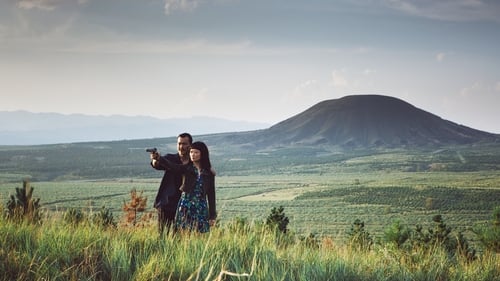
Zhao Qiao
Datong, China, 2001. Uma bela e jovem dançarina chamada Qiao (Zhao Tao) está apaixonada por Bin (Fan Liao), um mafioso local. Durante uma briga entre gangues rivais, ela dispara uma arma para proteger seu namorado. Mas isso lhe dá cinco anos de prisão. Após sua liberação, ela vai procurar Bin para tentar começar tudo de novo.
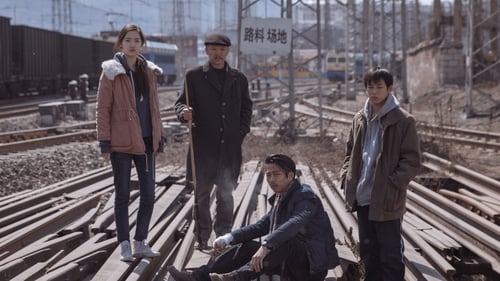
History Teacher
Na cidade chinesa de Manzhouli, dizem que há um elefante que simplesmente ignora o mundo. Manzhouli se torna uma obsessão para os protagonistas deste filme, cujas histórias são ambientadas em um único dia de suspense, do amanhecer ao anoitecer, quando o trem para Manzhouli está pronto para partir.

A short film omnibus featuring the work of five directors representing five countries involved in the 2017 BRICS summit, an annual international relations conference held between Brazil, Russia, India, China and South Africa. The collection—taking the concept of time as a unifying theme—depicts the economic, political, and social alienations and contradictions that create, compound, and structure issues as wide-ranging as poverty, class stratification, and homeless; familial distress; spousal abuse; and natural disaster.

Revive is one of five short films within the Jia Zhangke-produced omnibus film Where Has Time Gone? with contributions from each of the BRICS countries (Brazil, Russia, India, China, and South Africa). In Jia’s segment, a Chinese couple in the ancient town of Pingyao attempts to breathe new life into their old love as they ponder having a second child. Pingyao, home to the film festival Jia has co-founded, is a highly picturesque UNESCO World Heritage Site, and Jia humorously plays with a very recent dilemma – the second child policy dates from only 2013 – in a setting itself forcibly revived from history.
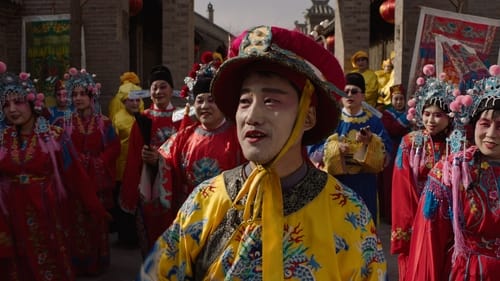
Writer
Na China, três operários desempregados de Shanxi estão procurando um emprego. Após várias tentativas sem sucesso, sua última esperança é serem contratados em um parque de diversões surrealista.

Shen Tao
Uma história em três partes que se inicia no fim da década de 1990 e acompanha Tao, bela jovem da província de Shanxi que se vê dividida entre dois pretendentes, seus amigos de infância Zhang e Liangzi. Um é herdeiro de um posto de gasolina, enquanto o outro trabalha em uma mina de carvão, e as consequências da decisão da mulher reverberam em 2014 e 2025.

Jia Zhangke's short film for Greenpeace East Asia depicts the effects of air pollution in northeast China, a region frequently blanketed in dangerous levels of air pollution. 'Smog Journeys' traces two families from two different backgrounds; one a mining family in Hebei province, and the other a trendy middle class family in Beijing. Both face a similar fate. Air pollution is one of China's most pressing environmental and health issues. Greenpeace calls for a shift from coal to clean renewable energy, as well as short term measures that better safeguard people's health.
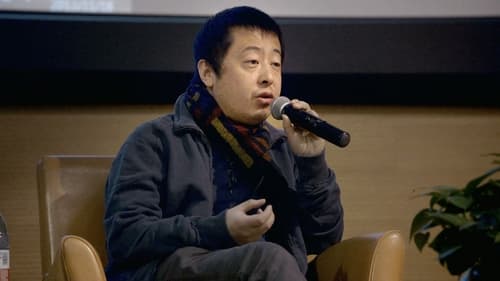
Self
Um retrato afetivo do chinês que, para muitos, se tornou um dos mais importantes cineastas de nosso tempo. Jia Zhangke volta aos locais onde rodou seus filmes, junto com seus atores, amigos e colaboradores, e relembra suas fontes de inspiração.
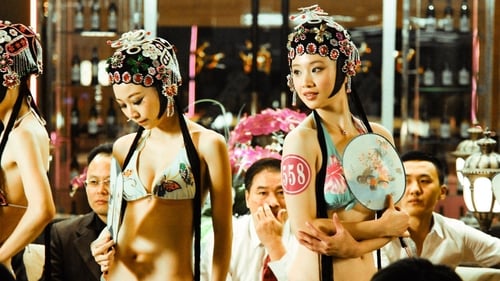
Xiao Yu
O Longa relata quatro histórias, entre elas uma sobre uma trabalhadora sexual em um bordel de luxo, que refletem uma sociedade em plena mutação, na qual o capitalismo desenfreado gera uma grande desigualdade e uma colossal falta de humanidade.

(segment "Alone Together")
Um tributo às vítimas do terremoto Sismo que atingiu o japão no dia onze de março de 2011, onde mais de quinze mil pessoas morreram. Cada diretor convidado elaborou um curta-metragem de três minutos e onze segundos para expressar seus sentimentos em relação a tragédia que abalou o país.

Shun Li
A study of the friendship between a Chinese woman and a fisherman who came to Italy from Yugoslavia many years ago, who live in a small city-island in the Veneto lagoon.

Self
Concentra-se nas pessoas, suas histórias e arquitetura que vão desde meados de 1800, quando Shanghai foi aberto como um porto comercial, até os dias atuais.

Blue Goddess
TEN THOUSAND WAVES is a 9-screen installation shot on location in China. The work poetically weaves together stories linking China’s ancient past and present. Through an architectural installation, the work explores the movement of people across countries and continents and meditates on unfinished journeys. Conceived and made over four years, TEN THOUSAND WAVES sees Julien collaborating with some of China’s leading artistic voices, including the legendary siren of Chinese cinema Maggie Cheung; rising star of Chinese film Zhao Tao; poet Wang Ping; master calligrapher Gong Fagen; artist Yang Fudong; acclaimed cinematographer Zhao Xiaoshi; and a 100-strong Chinese cast and crew. The film’s original musical score is by fellow East Londoner Jah Wobble and The Chinese Dub Orchestra and contemporary classical composer Maria de Alvear.

Jia Zhangke’s short for Modern Weekly’s special tenth anniversary issue.

Short-movie form Stories on Human Rights, 2008.
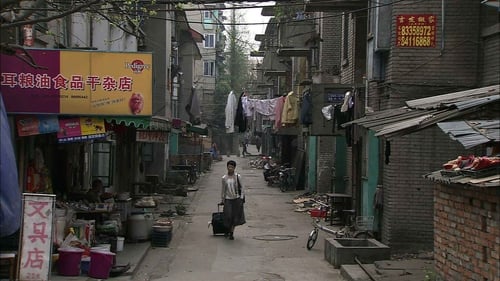
Su Na
Em Chengdu, na China, uma fábrica estatal de armamento militar é demolida para dar lugra a um prédio com vários andares onde serão construídos apartamentos de luxo. Com relatos de trabalhadores sobre suas vidas e a fábrica, o filme trás três gerações de histórias que mostram como os tempos mudaram.

An ancestral city; through its delicious botanical garden and its branched canals, we observe the clues and traces of its ancient culture. Two couples of men and women, former lovers, meet again one year later. The yesterday's breath of youth is still perceptible in their conversations. Is it still possible for us to love? Does youth really have an end? Like the networks linking the old city, what type of ecological existence does their culture require? Written by Venice Film Festival
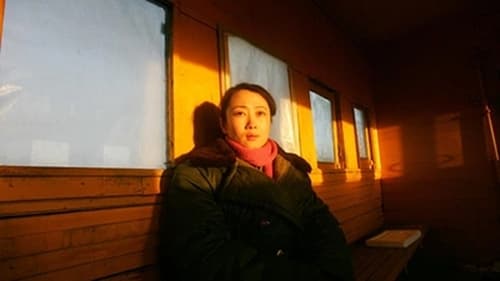
Throughout ten years of a key era in Chinese and Hong Kong history, a girl becomes fixated on a fellow commuter who she observes regularly. While the two never speak to one another, the girl captures her appearance and life changes during the years through various means such as photos and drawings.

Producer
Observations of three varied corners of China’s garment industry: workers in a large-scale production line factory; a designer who rallies against the mass-machine-production of clothes and has created the eponymous hand-made collection called ‘Useless’ (Wuyong) for Paris Fashion Week; and finally the simple life of increasingly out-of-work tailors in small town Fengdang.
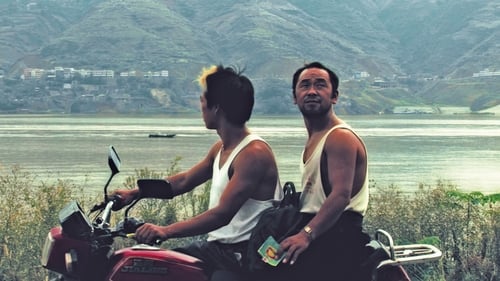
Shen-Hong Guo
A antiga cidade de Fengjie ficou submersa para a construção da represa de Três Gargantas, no rio Yangtze. Han Sanming é um trabalhador de minas de carvão que viaja até o local para reencontrar sua ex-mulher, a qual não vê há 16 anos. Simultaneamente Shen Hong, uma enfermeira, também retorna a Fengjie, na intenção de procurar seu marido, que não vê há 2 anos. O reencontro com seus esposos trará consequências diferentes para eles.
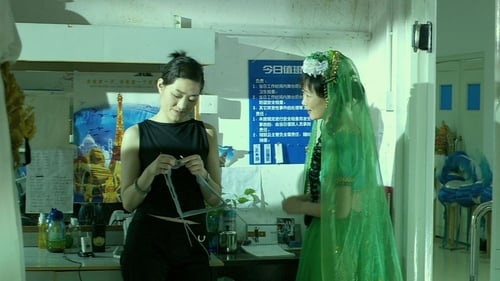
Tao
A young dancer, her security-guard boyfriend and others work at World Park, a bizarre cross-pollination of Las Vegas and Epcot Center where visitors can interact with famous international monuments without ever leaving the Beijing suburbs.
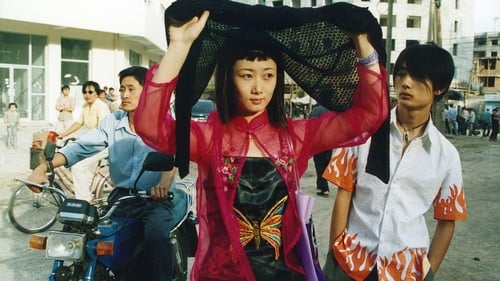
Qiao Qiao
Three disaffected youths live in Datong in 2001, part of the new "Birth Control" generation. Fed on a steady diet of popular culture, both Western and Chinese, the characters of Unknown Pleasures represent a new breed in the People's Republic of China, one detached from reality through the screen of media and the internet.

Yin Ruijuan
Inverno, 1979. Na pequena cidade de Fenyang na remota província chinesa de Shanxi, um grupo de teatro apresenta uma peça glorificando Mao Zedong. A vida de Minliang e dos outros camaradas gira em torno das representações e das histórias de amor que acontecem. Na Primavera de 1980, a vida do grupo de teatro sofre mudanças, com a entrada das influências ocidentais. Quando a política do Governo muda, os subsídios do grupo são cortados e a companhia é privatizada. A incerteza paira sobre o futuro do grupo e sobre as relações entre os vários elementos.



















